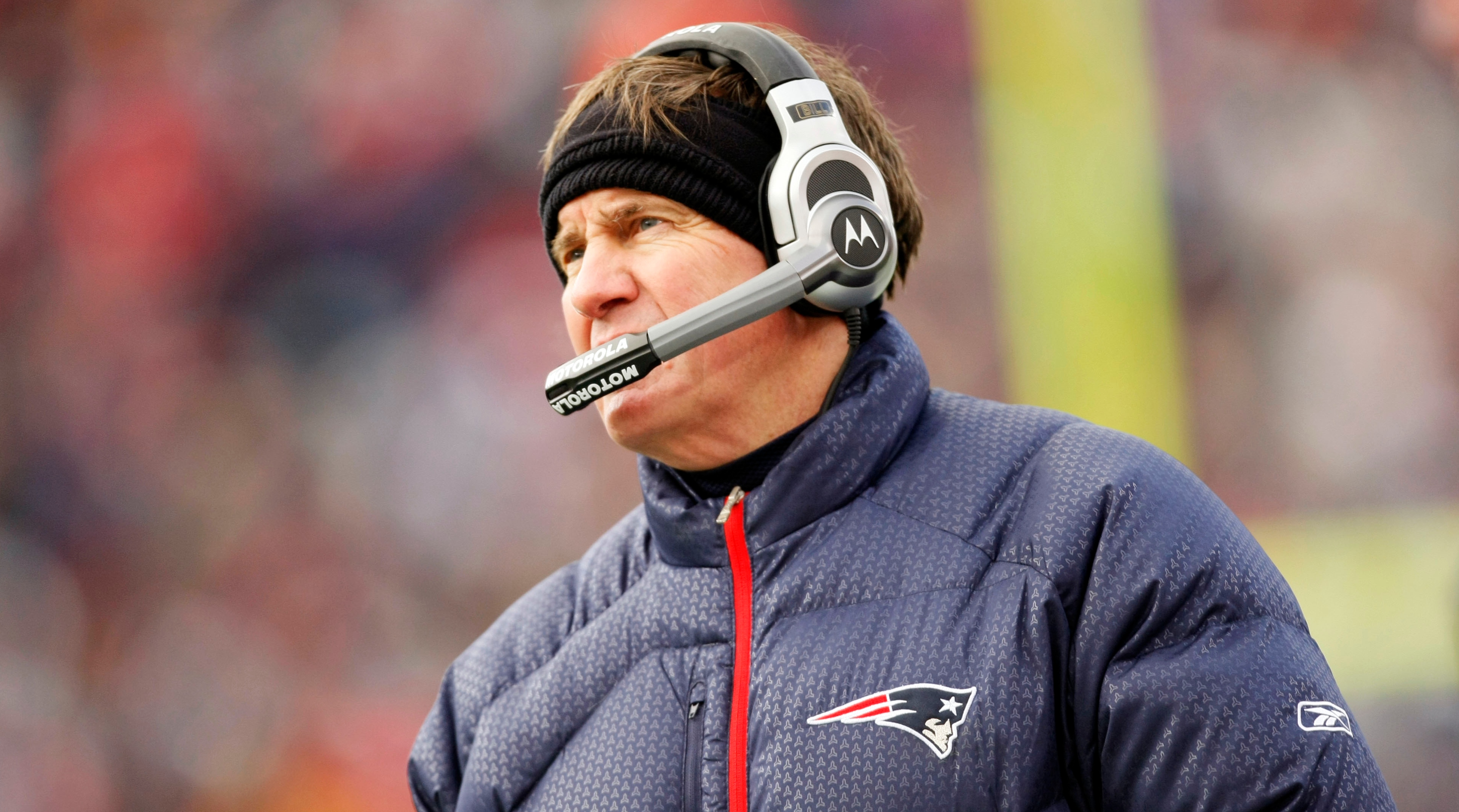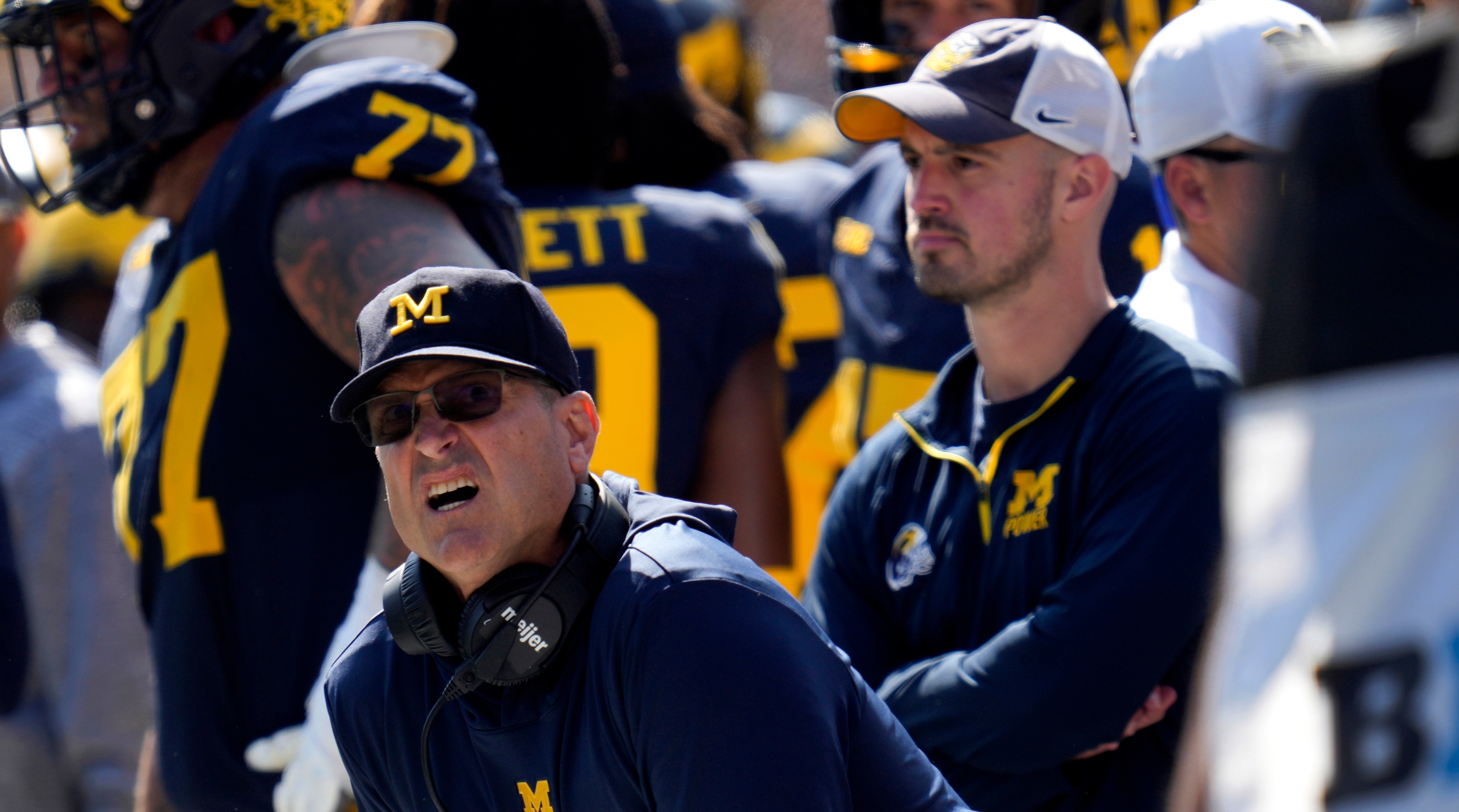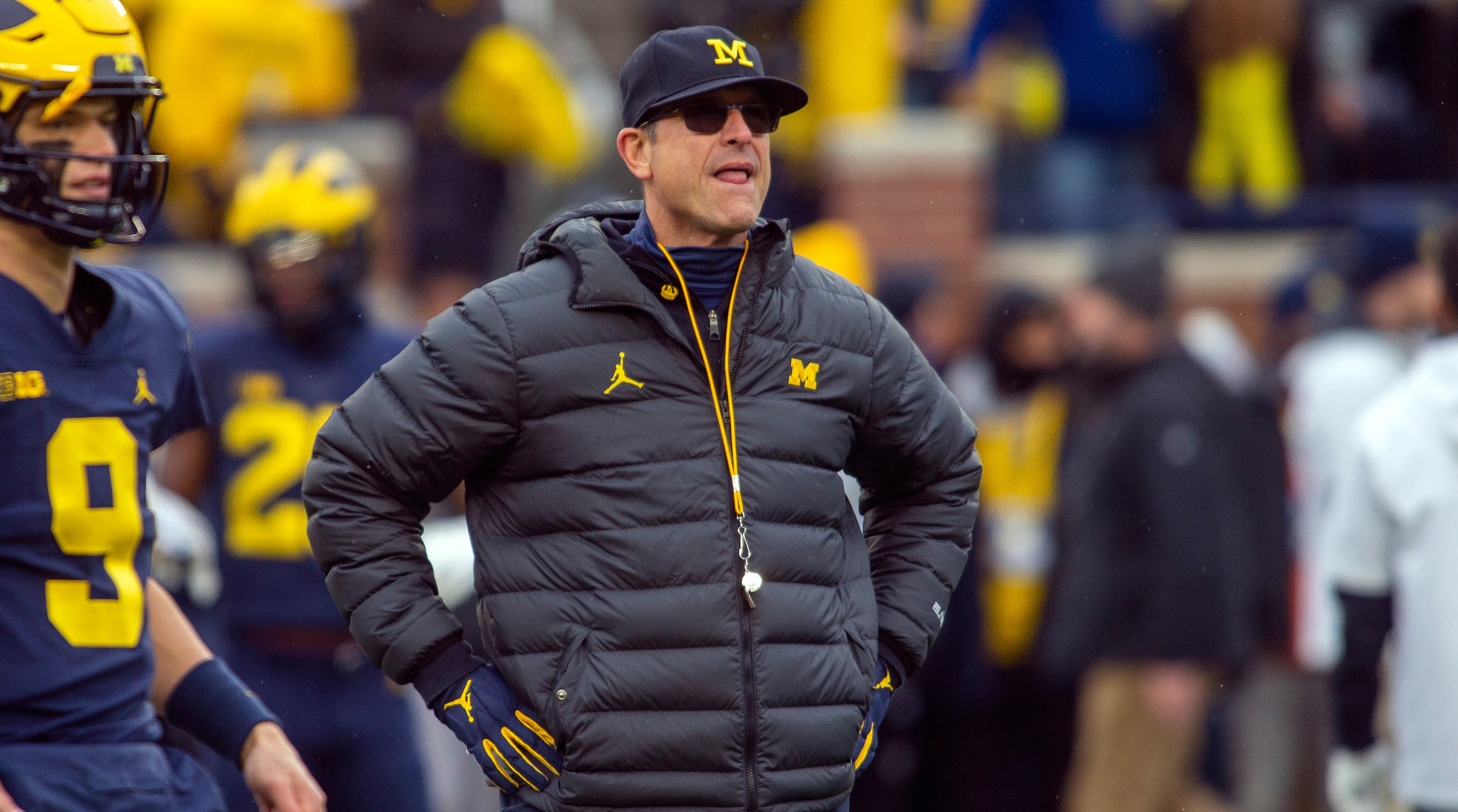Michigan Sign-Stealing Debacle Proves Need to Address Unwritten Rules in Sports

This call, like so many calls from 2008, was beyond strange. It had been prearranged, by a source, for someone other than the source to phone on a scheduled day at an appointed time. I would never know the identity of this person, and they would tell me which games were on the videotapes at the center of an investigation into the Patriots.
For those of us who lived Spygate, who reported and wrote amid lakes of misinformation and more than a few death threats, reaction to Michigan’s recent scandal fell somewhere between two questions. The first: This again? And: Why don’t sports even learn enough to change?

The Spygate stretch was … wild. Trips to Washington to meet with Arlen Specter, the longtime and now late U.S. senator. Lunch in the Senate dining room. Meetings at gas stations. In parking lots. Cross-country travel. Rumors. Confirmations. Subterfuge. Misdirection—intentional and otherwise. Michael Brick, my late and esteemed colleague at The New York Times, left 30-plus messages on the answering machine of one prominent Patriot. Yeah, strange.
When Michigan’s mishap dropped into the same space, the memories flooded back. The allegations weren’t exactly the same, but the dismissals of them were. The everybody-does-this crowd came out in full force, as did the it-doesn’t-really-matter one. Both deployed typical arguments meant not to engage in debate but to end debates before they started.
Let’s start with debunking. In both cases, what happened wasn’t typical. In both cases, what happened went beyond normal spy shenanigans. Neither team could reasonably claim to confront adversity in the form of direct actions by their own employees. Neither could honestly insist they gained no benefit from the misbehavior, either—at least not with a straight face.
The problem, in both instances and many others—the reason so little changed in the past 15 years—is simple and yet infinitely complex. The problem is unwritten rules in sports, because they allow for too much wiggle room, too much interpretation and too easy an excuse to dismiss what’s not typical but can be framed that way.
I’ve always thought the Patriots benefited far more than commonly believed from their illegal videotaping of opponent’s signals. That’s based on dozens of interviews and all the published stories that came out of them, along with conversations had in the years since. A pinch of clarity, a clear line drawn between allowed and illegal, would go a long way toward eliminating some of the strangest scandals in recent sports memory.
In regard to the latest, the basics: Half the world now knows the name “Connor Stalions,” and that half probably knows Stalions once sold used vacuum cleaners. That isn’t, in and of itself, remarkable. What happened next is. Stalions became an “analyst” for the mighty Wolverines football program. He would fall under investigation for stealing signs, and not just in a run-of-the-mill way. Stalions would be investigated for buying tickets to games for opponents who were on Michigan’s schedule, giving said tickets to “associates,” as if in some sort of sign-stealing mafia, having those associates film on iPhones and send back clips.

The whole thing comes across as absurd, in part because the rules are, at minimum, not easy to understand. Start here: Stealing signs is O.K., but in-person scouting is not, which means that some sign-stealing is O.K., but other sign-stealing is not. Got it? Good.
Something that benign spirals, because, of course it spirals. There is a multiple-car wreck to gawk at and cheap clicks to amass and opinions that have nothing to do with this sort of scandal just waiting to be endlessly deployed. Stalions becomes a “person of interest.” Private investigators, employed; FOIA requests, filed; facial recognition “experts,” hired; manifestos, reportedly penned. Stalions’s resignation is greeted with the resources devoted to covering presidential debates. There are actual “vacuum scoops”—and from an authority with the heft of The Wall Street Journal.
Isn’t this college sports, summarized, in one scandal? Endless—and endlessly unnecessary—self-importance. A “crisis” that ignores the larger, systemic issues forever in play (like traumatic brain injuries) but rarely addressed. The absence of self-awareness choked to death by that self-importance. And, most pertinently, no clear path forward to any sort of resolution that won’t anger half of those invested in this. Whatever “this” is.
It’s all very predictable. It’s also all very America, in 2023, but it doesn’t have to be. Because buried within this circus are solutions. But they’re buried. So they lead to another circus, and another circus and …
Here’s the problem with unwritten rules and notions of gamesmanship: They’re suggestions—murky and undefined. There are also too many of them. Hence how two coaches at different planes on football’s highest levels can be lauded for pushing boundaries and then lambasted for exactly the same.
One option: Make gamesmanship, of all types and forms, legal. Make it part of the competitive landscape, but not in a murky way—in an all’s fair one.
Another: More clearly define these “lines” that are trotted out every time a scandal of this type bubbles to the surface. In the case of Stalions, for instance, his alleged actions seem clearly over any reasonable line. But that’s not the only part that needs defining. What about Harbaugh’s responsibility? Should the head coach be liable for anything done by a team employee? Does whether Harbaugh knew matter? Should it? Start with writing in specific rules—this is O.K., this is not O.K.—and then add to them, in granular detail, all the way down to who is punished for which violation. The “how” matters less than the clarity.
If neither of those options works, we could at least paint less broadly. Take each scandal for what it is: distinct. The one at Michigan isn’t the one in New England, just as the next one, at whatever level it takes place at, won’t be like Michigan’s— unless there’s another Stalions lurking somewhere with the same plan and same associates. More likely, it’ll be something in the same neighborhood. But it will be framed as a replica of the same house.

Perhaps the vitriol cast at Harbaugh in recent weeks has been a little much. I’d argue that. He certainly made it easy for his critics. At one news conference in mid-November, he talked about everything except the scandal—backyard chickens, his elite immune system, even Judge Judy—in an all-time sports filibuster. He criticized the Big Ten for not notifying him nor anyone at Michigan before the conference handed down a three-game suspension. He promised that Michigan would fight the ruling and hinted that the Wolverines would win. He said he planned to attend the hearing.
Then this: “As a senior in high school, I had a civics class. We talked about government, justice. What I took away from the class was that you’re innocent until proven guilty. That was 40 years ago. I’d like that opportunity.”
Really? Apparently not. Rather than engage in the hearing he espoused to desire—and in fairly dramatic fashion, no less—Harbaugh and Michigan accepted the conference’s suspension instead. A man known for maxims like his plan to “attack this day with enthusiasm unknown to mankind,” and for his habit of quoting Theodore Roosevelt and Rudyard Kipling (and not always the right person in that duo), and for comparing his immune system to an “iron wall that viruses bash against and shatter,” chose not to fight this particular fight.
Maybe the suspension wasn’t fair to him. Or to Michigan. But without his or its response, anyone claiming to know that for certain couldn’t be certain at all. Regardless, if it’s at all possible to define what has not yet been defined, to draw clearer lines that require no unwritten rules or subjective interpretations, can we add the idea that Michigan and any team in a similar situation overcame “adversity” to the list?
Whether it’s the university’s president gloating on X (the platform formerly known as Twitter) after Michigan topped Ohio State, or Harbaugh’s fill-in, Sherrone Moore, crying in an on-field postgame interview for all that Harbaugh had endured, that part of this strange exercise is gross. For one, this particular “adversity” was self-inflicted, not thrust upon UM like some sort of plague. For another, the Wolverines were hardly impacted by their punishers, at least far. Sure, Harbaugh couldn’t be on the sideline for three weeks. But he could still coach in the lead-up, and he could still recruit, and, by the way, Michigan still won. Beyond that, the program received an unintended bonus. All the chatter centering on the punishment being fair or unfair to Harbaugh distracted from real, more pertinent questions. What did he know? What should he have known? Harbaugh says he’s responsible for everything that goes with his football team. Wouldn’t that include this?
So add that to the list of fixes for strange football scandals involving signs and signals. None of the “victims” in those cases are victims at all. Just as none of those involved are overcoming anything beyond situations created by the programs they work or play for.
After all, football teams at any level will look any place they can to summon the motivation necessary to play a game as violent and difficult and complex as any sport in existence. But perhaps the better idea there would be to turn that same emphasis in the right direction: at themselves.
